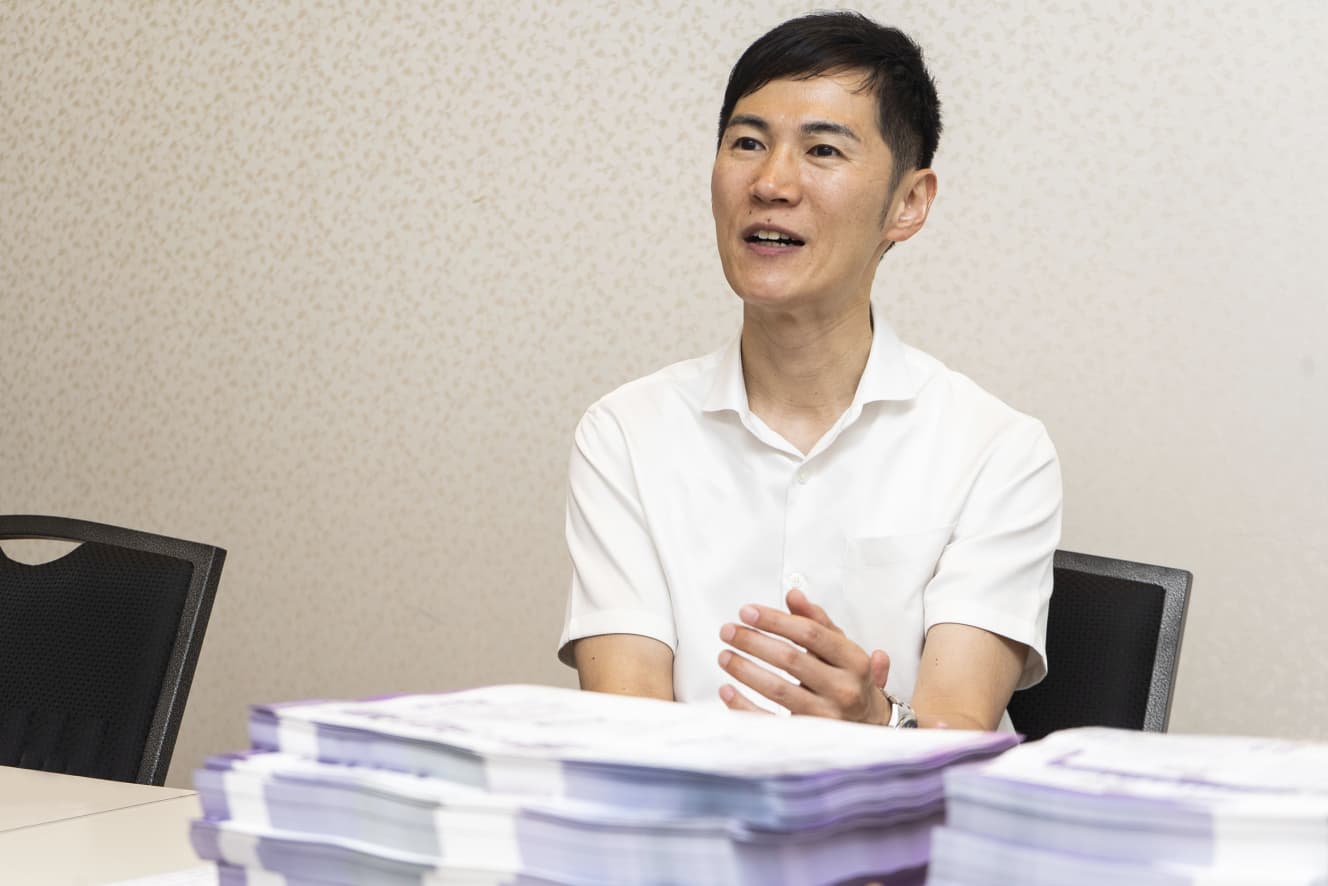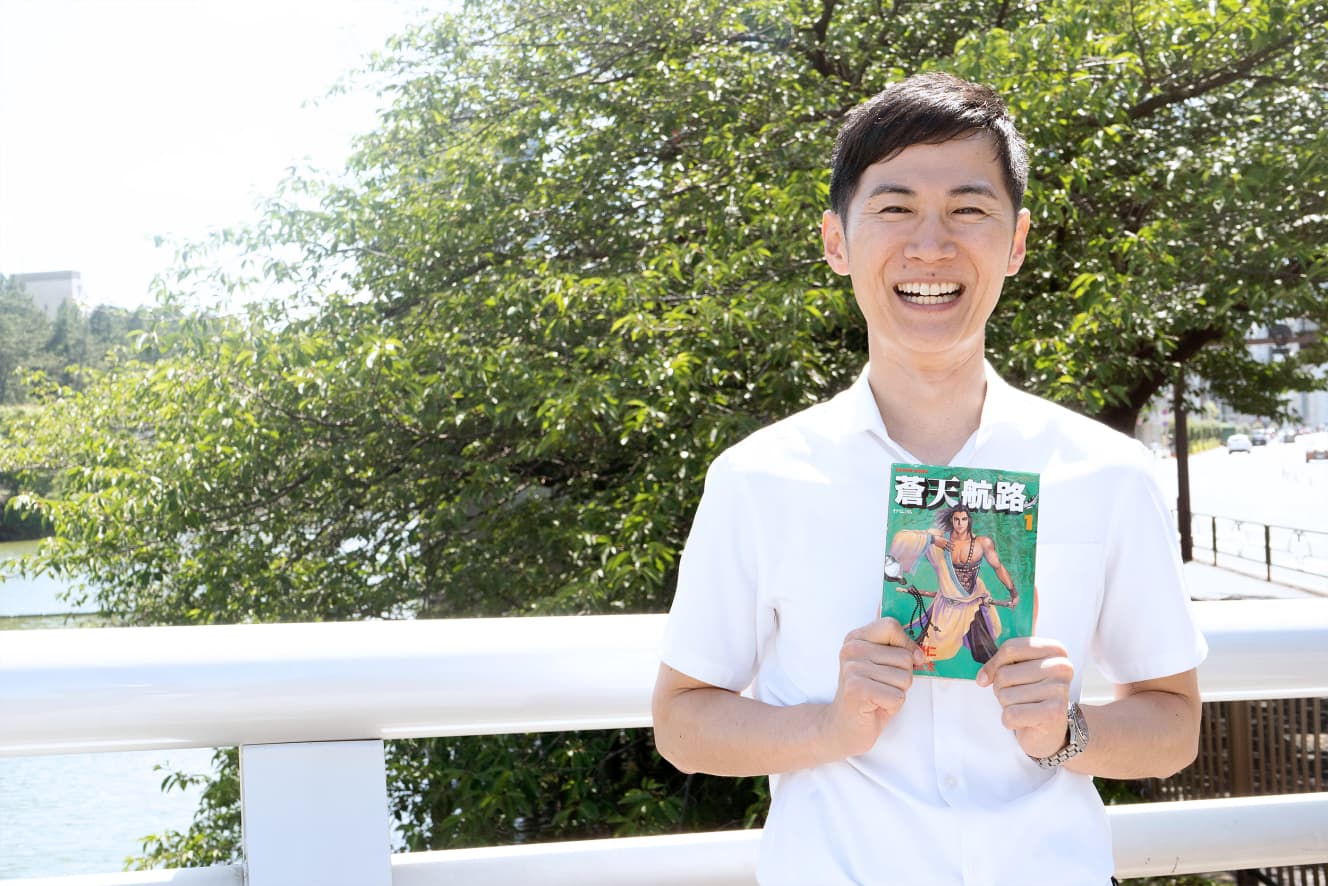Former Mayor Shinji Ishimaru Urges ‘Cao Cao-Type’ Leadership in Turbulent Times
What was the reason why he decided to run for the Tokyo gubernatorial election between Yuriko Koike and Renho Renho? A big manga fan, his favorite book is "Souten Kouroku.
“I was surprised when I came to Tokyo and saw over 1,000 people attending the election volunteer orientation. We had booked a room that could only fit up to 500 people, so we had to split the orientation into two sessions unexpectedly. However, I wasn’t surprised that many people stopped to listen to my speech in Shibuya. I had anticipated this level of response when choosing the speech location.”
The Tokyo gubernatorial election, set for July 7th, is generating unusual excitement. Over 50 candidates, including Dr. Nakamatsu (95), Toshio Tamogami (75), and lawmaker Yuusuke Kawai (43), known as the Joker, have expressed their intention to run. However, most are seen as fringe candidates. Amidst this, incumbent Tokyo Governor Yuriko Koike (71) and former senator Renho (56) are expected to have a head-to-head battle. Former Akiota-takada Mayor Shinji Ishimaru (41), as described at the beginning, exuded confidence.
After graduating from Kyoto University, Mr. Ishimaru worked as an analyst at Mitsubishi UFJ Bank. Upon becoming Mayor of Akiota-takada in 2020, he actively uploaded footage of council meetings and press conferences to the internet. Known for his unique approach of not shying away from arguments with city council members and reporters, he quickly gained attention. His high profile on the internet serves as a source of confidence for him.
Mr. Ishimaru’s political strategy is centered around “first getting attention.”
“To raise funds, you need to first attract attention. Additionally, I felt that politics requires an ‘entertainment element.’ To be honest, there were times when I ‘acted’ in my actions at the council. I would research what to say the day before, almost like assembling a script.”
While he has a passionate support base, criticism also follows his provocative actions that do not shy away from controversy. His sudden candidacy was met with accusations like “He doesn’t have any significant achievements” and “Is he abandoning his city duties?”
“I have a fundamental sense of crisis that if we don’t hurry with reforms, Japan as a country itself won’t hold up. So, why run for governor? Tokyo is a mature city on a global scale, but it faces issues like ‘overcrowding.’ It has become a black hole drawing people from other prefectures due to centralization. With a focus on political reconstruction, urban development, and industrial creation, I aim to achieve a strong Japan by breaking away from Tokyo’s centralization.”

Here’s the evaluation of Governor Koike’s eight-year administration.
“Drawing from my experience in Akiota-takada City, the perspective of ‘what to preserve’ in administrative services will become crucial moving forward. Tokyo, which is expected to peak in population around 2040, is also entering such a period. Policies like tuition-free education need a macro perspective that enhances the quality of education, rather than just being giveaways. At the same time, I feel that unless we address the economic vulnerability of young people, which is a cause of declining birth rates, we won’t achieve a fundamental solution.”
Mr. Ishimaru’s sharp rhetoric, which he considers his weapon, often draws inspiration from having read over 20,000 manga volumes. At his first street speech in Shibuya, he quoted the line from “Ghost in the Shell”: “If you have complaints about the world, change yourself,” appealing to the audience.
The work that he says he resonated with the most in life is “Souten Kouro,” which depicts Cao Cao, the hero of Wei in “Romance of the Three Kingdoms” by Koei.
“In a time where many works portray Cao Cao as a ruthless villain, ‘Souten Kouro’ encapsulates his complexity. Nowadays, it’s easy to focus on whether someone is good or bad, but humans shouldn’t be that simple.”
When asked about emphasizing Cao Cao’s weapons of strategy and action, he responded.
“In Souten Kouro, Cao Cao utters the memorable line, ‘What use is life without releasing your emotions!’ I believe that life loses its meaning if you suppress your emotions. It’s crucial in both politics and business to remain calm and rational like Cao Cao, while also cherishing emotions.”

He believes there are parallels between his political image and that of Cao Cao.
“In today’s Japan, where political distrust is rising due to scandals involving slush funds, it feels like a time of ‘national chaos’. Like Cao Cao, I think there’s a need for politics that breaks free from preconceptions and sometimes lets emotions explode.”
With over 50 candidates in the chaotic Tokyo gubernatorial election, Ishimaru faces the question of whether he can become a cunning hero like Cao Cao—or something else entirely.
Photo: Takayuki Ogawauchi
